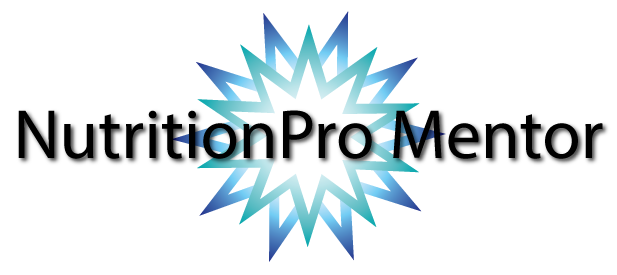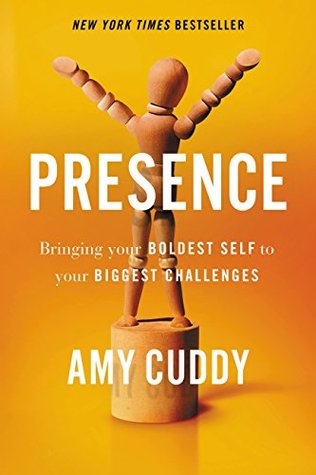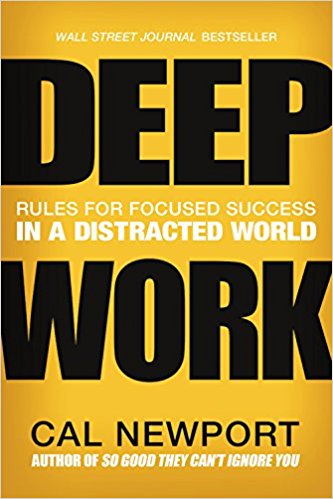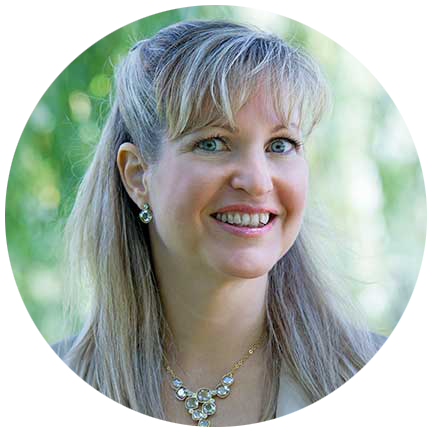This also inspired me to look more closely into the mental health impact of social media, since I had come across quite a lot of articles and other references on this topic. As a result of this research, I created a lesson for NutritionPro Mentor members, and this summary for you.
Once upon a time I used to live-tweet
I would be sitting in the audience, enjoying the presentation and taking notes. Then the speaker would say something tweet-worthy, so I would be compelled to grab my iPhone and type it out, complete with the hashtag provided by the conference organizers and tagging the presenter if they were on Twitter.
It would annoy me a little if the speaker didn’t provide their Twitter handle in the program or on their title slide. This meant that I had to spend some extra time searching for them on Twitter, just so I could tag them. I found it great when presenters put their social media details in the footer of every slide.
Then, of course, I was curious to know if others were tweeting during the conference. So I would search for other tweets with the conference hashtag. I would find the tweets from my fellow attendees, like them and even retweet some good ones.
We would all, of course, also tag the organizer, to make sure we got their likes and sometimes even — what an honour — a retweet!
It was a real ego boost to be doing that. Even made you feel important.
Also, once you engage with it (Twitter), it KNOWS. You’ve awakened it and it will send you notifications whenever someone tweets about the conference, which means that you then feel the NEED to check it.
And so the vicious cycle begins. And continues.
And this happens with other social media platforms, too.
But you know what? Somewhere along the line I realized that I was missing out.
I ended up missing out on some of the nuances and even some valuable content of the presentations I half-attended.
Live tweeting took my attention away from the here-and-now of where I was. Instead of soaking in every word, writing it down and enjoying the moment, I was in a virtual world, trying to make myself feel important.
Ouch — that realization kind of stung.
Ironically, even though I knew I was missing out when I was dividing my attention, I didn’t think it was a big deal at the time.
It was this presentation at the Art of Leadership Conference in November of 2015 that made me realize that I was NOT being present when I was tweeting during presentations. I was missing out. I suppose I kind of realized this before, but I believe it was this talk that really made me think about what I was doing.
The TED talk was based on a chapter of the book, while the presentation I attended expanded on that. I believe that the TED talk inspired Amy Cuddy to write the book — that’s what I heard, in any case.
I’ve put the link in the references for you. It’s worth watching.
So as I’m sitting in the audience, watching and listening to Amy Cuddy speak about being present, I decided that I wanted to get the most of these talks. Which meant doing away with the distractions.
Believe it or not, we can’t really multitask. Our brains actually switch the attention from one thing to the other and back again. Multitasking is an illusion. So it is to our advantage to do one thing at a time, and to do that one thing with our full attention.
However, we are tempted all the time to divide — or fracture — our attention. Social media is notorious for pulling our attention away from being present, with their incessant notifications. But social media platforms aren’t the only culprits. Also implicated are texts, email notifications and even phone calls on our cell phones. Gone are the days of only being interrupted by coworkers.
So let’s talk some more about social media’s demand on our attention, the potential mental health consequences, and how to use it responsibly.
When I started researching on the topic of social media, I was interested in information about using it properly and effectively to grow a small business, and also about how to avoid it pulling you into a time vortex. But what got my attention during my research, were the many articles and YouTube talks about the impact of social media on mental health.
Before I continue, I need you know that I’m not against social media. I am NOT telling you to swear off all social media. I believe social media is here to stay, so we should learn to use it in a way that is not detrimental to our own mental health — AND in a way that provides useful, positive and inspiring information for our followers.
The use of social media does not come without potential risks.
In fact, this potential for harm when engaging with social media has prompted some people to opt out of being on social media completely.
In a TEDx talk by Dr. Cal Newport called “Quit Social Media,” this millennial computer scientist, professor and book author, who never had a social media account, and compares himself to a unicorn — because of the unusual absence from social media for a millennial — relays that his idealized vision of the future is LESS people on social media. He also tells us that he is “ok” and that he has friends, despite not being on any social media platforms.
He says that the market will value and reward the deep, concentrated behaviour to build real skills and to apply those skills to produce things that are rare and that are valuable. And that if you do this, people will find you.
Social media can make you less able to concentrate
And the scary thing is… the more your attention is fragmented… the more you are interrupted — or allow yourself to be interrupted — by social media notifications that entice you to go in and check your likes and who commented on your post (and so on), the higher the chance that this can PERMANENTLY affect your attention span and reduce your capacity for deep concentration.
I hope you agree that this is a bad thing and that we want to be able to preserve our ability to concentrate. So that when it comes time to work, we can actually do one thing after another, and do it fully engaged and in the most efficient way possible. Which means we can get more done in less time.
Social media can make you feel anxious
This is evidenced by the explosion in the incidences of anxiety-related disorders among College students, since smartphones have become more common.
Social media can make you feel lonely or isolated
However, there are also studies showing the opposite.
A compromise
Once we recognize that there is a problem with using social media too much and that there is a potential for addiction and other detrimental effects on mental health, we can take steps to minimize the impact. Awareness is the first step. A healthy measure of respect is next — by that I mean we should all acknowledge that the use of social media is NOT harmless, and that we are NOT immune to its effect.
You may be wondering what I did once I realized that, because of live-tweeting, I wasn’t fully present. Well… I quit cold turkey for a while. I realized that there was an addictive quality to using Twitter during conferences.
The compromise here is to highlight, in my notes, some of the clever and meaningful content shared during a presentation, and then tweet or share on social media during a break or at the end of that day.
I believe that we can adjust how we use social media to escape the potential detrimental mental health effects.
Here are my tips for safe social media use.
Use social media responsibly
In reality, the issue isn’t so much the use of social media, but how you’re using it and what you’re doing with it. If you use it for 2 hours or more a day, you are more likely to feel lonely than if you’re using it for 30 minutes or less per day.
Have a reason, or a goal, for each time you interact with social media. Don’t go on it because you are bored or you are procrastinating about doing something else.
Do an audit
Start by auditing how much time you spend on social media and how it makes you feel. We need to monitor how much social media we take in, just like we make conscious decisions about how we eat and how much we move.
For example, reflect on how your use of social media each time has made you feel: better or worse?
Avoid “social snacking”
This is a new term I learned recently. “Social snacking” is when you scroll through posts and profiles and read other people’s comments, but you don’t engage. This activity seems to be something in particular that can leave people feeling lonely and frustrated, because there is no interaction and yet there is a lot of time wasted.
Create a better online experience
Do what you must to create a better online experience for yourself. Unfriend or unfollow people who are making you feel inadequate or depressed, or are causing you to waste too much time on things that don’t really interest you, or that you followed or friended because they followed you or because they are a friend of a friend of a friend that you felt you “should” accept as a friend when they asked you.
Perhaps make a list — of people, businesses, companies, groups — that you WANT to interact with and check those out separately. Don’t let the home page feed determine what you look at.
Limit your exposure
Turn off notifications or leave your smartphone in another room when you are trying to create content, or when you need to focus on something… when you need to be able to do deep work. This is one of the reasons I often go into a different room, without my computer or cell phone, and write longhand in a notebook before I type something in my computer — to get away from the electronics and the potential interruptions.
Schedule in time when you intentionally go into social media to interact. If you are doing research on social media (for example on Twitter or LinkedIn), focus in on that and set the intention that you will not allow yourself to go on tangents or down an unrelated rabbit hole… I know that there are so many interesting things that get posted — it’s so easy to get pulled away! If it still happens, don’t fret. Gently pull yourself back. Also, if it happens that you came across something you DO want to read, but it’s unrelated to your present mission, open the link in another tab to read another time, or bookmark the page. Then schedule in some reading time.
Set a time limit when you go on social media. You may find you need to set a timer for this, since social media seems to then pull you into a time warp. Before you know it, 2 hours have gone by in what seemed like 10 minutes!
Plan to unplug at least an hour a day, one day a week AND when you go on vacation (a whole week every 3 months). Your brain will thank you!
Make a conscious decision
Because there is a REAL cost to using social media, when you are deciding if you should use this or not — or if you are deciding how much to use this — identify whether or not you have a significantly positive, clear benefit that can outweigh these potential, yet non-trivial harms.
Social media is a tool that can be used for good. Although social media can tear you down, it can also lift you up. And it’s all up to you — you get to decide what shows up in your feed on your social media platform home page.
Also, model good behaviour online. Make your posts helpful, positive, motivating, or inspiring. Don’t engage the social media trolls (unfollow, unfriend, or block).
If you are going to spend time on social media, let it inspire you, motivate you, make you laugh, and lift you up.
Perhaps start by following NutritionPro Mentor on Facebook and Instagram?
That’s it for today. See you next time.
by Andrea Sevsek, Director of NutritionPro Mentor.
Dr. Amy Cuddy’s TED Talk, Your body language may shape who you are: https://youtu.be/Ks-_Mh1QhMc
Dr. Cal Newport’s TEDx Talk, Quit social media: https://youtu.be/3E7hkPZ-HTk



